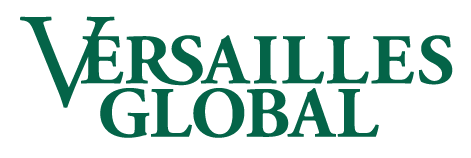In mergers and acquisitions (M&A), numbers tell a story, while not all stories are created equal. Two companies might report identical earnings, yet one could command a significantly higher valuation in the market. Why? The answer often lies in the Quality of Earnings (QoE). It offers a deeper analysis of the sustainability, reliability, and clarity of a company’s financial performance, unveiling the true financial picture in M&A.
What is Quality of Earnings (QoE)?
Unlike traditional audits that focus on compliance with accounting standards, a QoE report aims to assess the true operating performance of a business. It helps determine how much of a company's earnings are derived from its core operations and whether those earnings are likely to be sustained post-transaction. This insight is critical for both buyers and sellers when evaluating or presenting the financial health of a business.
Purpose and Benefits
QoE analysis is commonly initiated by the buyer as part of the financial due diligence process. However, an increasing number of sellers also commission QoE reports to prepare for sale, which reduces the risk of renegotiation and strengthens their negotiating position.
For buyers, a QoE analysis validates the quality of earnings, providing assurance that the figures reported are not only accurate but also sustainable. Additionally, it highlights potential red flags, such as inconsistencies in financial reporting or underlying operational risks that could impact the deal's value or viability. This information is invaluable in supporting accurate deal valuation.
From the seller's perspective, a comprehensive QoE report demonstrates financial transparency and preparedness. It anticipates potential questions or concerns that buyers may have, effectively addressing them before they become points of contention. This level of preparedness can expedite the due diligence process, allowing sellers to streamline negotiations and potentially secure more favorable deal terms.
Key Components of a QoE Analysis:
- Initial Planning and Scope Definition. The financial advisor customizes the scope of work based on the transaction size, industry, and specific deal objectives.
-
Data Collection. Detailed documentation is gathered, including financial statements, general ledgers, tax filings, management reports, customer contracts, and supplier agreements.
-
Normalization Adjustments. Analysts make adjustments for non-recurring, discretionary, or unusual items, such as legal settlements, one-time gains or losses, and related-party transactions to calculate a normalized EBITDA.
-
Revenue and Expense Review. Trends in revenue recognition, customer concentration, gross margins, and expense categories are closely examined to assess sustainability.
-
Working Capital Analysis. An assessment is made to determine a normalized working capital target, factoring in seasonal patterns, inventory cycles, and operational requirements.
-
Cash Flow and Balance Sheet Evaluation. Cash flow generation, capital expenditures, and liabilities are reviewed to understand the company’s liquidity and financial resilience.
-
Reporting and Presentation. The final QoE report summarizes key findings, presenting adjusted EBITDA, financial trends, potential risks, and opportunities for improvement.
Real-World Case Studies
In the context of real-world transaction scenarios, we can explore compelling examples that illustrate the importance of Quality of Earnings (QoE) assessments.
One notable case involves a family-owned manufacturing company in the Midwest preparing for sale. During a sell-side QoE engagement, it was discovered that the company had been paying $450,000 annually in salaries to non-working family members. By recasting its EBITDA to exclude these discretionary expenses, the company effectively increased its valuation by approximately $3 million, based on a 6.5x EBITDA multiple. This adjustment not only raised the asking price but also underscored the company's commitment to transparency, fostering greater confidence among potential buyers.
In another instance, a wholesale distributor with $32 million in annual revenue faced challenges during a difficult ERP implementation, resulting in lost sales. A sell-side QoE analysis quantified the financial impact of these lost revenues and effectively presented a normalized earnings picture to prospective investors, showcasing the distributor's potential for recovery and growth.
Additionally, a regional fashion retailer undertook a significant expansion by opening three new stores while closing one unprofitable location. The QoE analysis for this retailer adjusted for the associated startup costs, initial operating losses, and closure expenses. This approach yielded a normalized EBITDA that provided a more accurate reflection of ongoing performance, which can be vital for attracting investments.
Furthermore, during the acquisition of a chain of outpatient clinics, the buyer's QoE team discovered that a significant portion of EBITDA was attributed to temporarily inflated margins caused by COVID-19-related reimbursements. By adjusting for these one-time payments, the QoE helped the buyer negotiate a lower valuation and identify which clinics were truly profitable.
These examples highlight the critical role that Quality of Earnings assessments play in accurately depicting a company's financial health and potential during transactions.
Conclusion
A Quality of Earnings (QoE) analysis is not merely a component of due diligence; it is a critical tool for elucidating the underlying narrative of a company’s financial condition. By employing a comprehensive QoE report, a transaction can achieve a more precise valuation and facilitate smoother negotiations.
Versailles Global, a Florida-based firm, advises on Mergers, Acquisitions, Divestitures, and Company Sales to companies and entrepreneurs. Versailles Global is affiliated with Versailles Group, Ltd. in Boston, which is an M&A firm with four decades of experience.
For additional information, please contact:
Donald Grava
Founder and President
+1 617-449-3325
dwg [at] versaillesglobal.com

